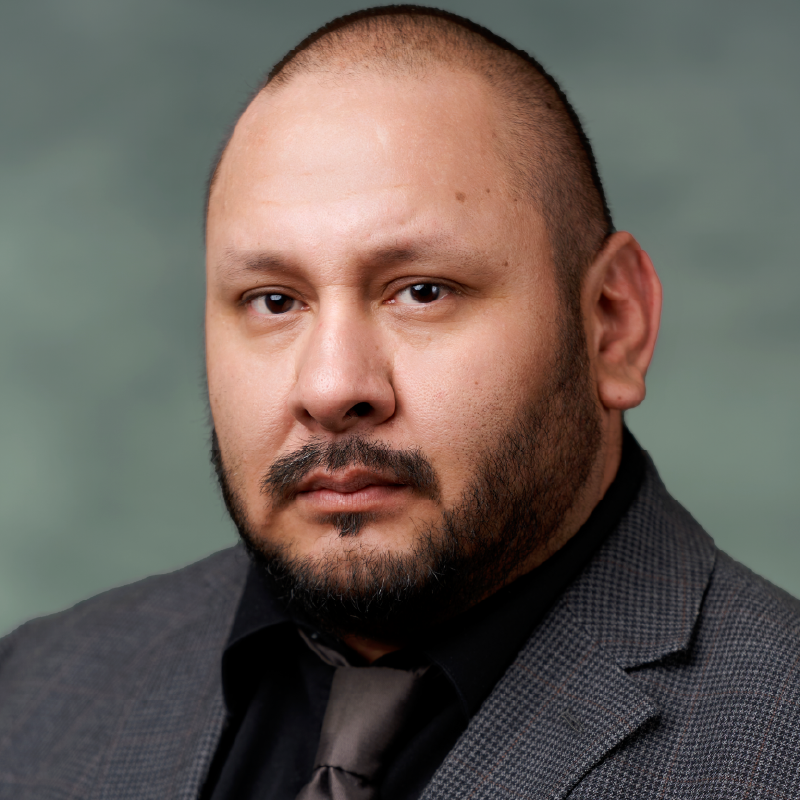Carlos Anguiano, Ph.D., Managing Associate, has extensive experience in educational research and evaluation. His professional interests are rooted in his passion to ensure that every child has equitable access to high quality education. He believes that this is achievable by increasing the capacity of parents, educators, policymakers, and community members to collaborate and advocate for sustainable systemic changes in early childhood to post-secondary education. He uses his training in educational psychology to support parent leadership; design data collection methods and protocols that are age, developmentally, culturally, and linguistically appropriate for children and youth from diverse backgrounds; and evaluate and enhance family, school, and community partnerships. He also has expertise in multimedia learning curricula and classroom assessment.
Carlos is presently involved in evaluations of philanthropic initiatives to build community power to advocate for health and education equity, improve afterschool and other supports for children and youth living in under-resourced places, and promote learner-centered education. Before joining Community Science, Carlos worked with the RMC Research Corporation, where he led the evaluation of programs involving preservice teacher training and student interventions to improve reading and math outcomes. He has also led evaluations of programs based in schools, community colleges, and community-based organizations on topics ranging from personalized online learning tools to broadband access and school policing. Among the organizations he is working with or has worked with are Edgenuity, Dogwood Health Trust, United Way for Southeastern Michigan Community Schools, University of Louisiana at Lafayette’s Changemaker K12 Program, and Wend. He was assistant director for the renowned McNair Scholars Program at two universities, working closely with first-generation college students and students from traditionally underrepresented groups in graduate education.
Carlos has a Doctoral Degree in Educational Psychology. He has published and presented on topics ranging from multimedia learning curricula to parent-teacher communication and student identity in journals such as Contemporary School Psychology, Education Psychology, and Practitioner Research in Higher Education, and at conferences sponsored by the American Educational Research Association and American Psychological Association.
Carlos lives in Colorado, and when he is not evaluating and advocating for education equity, he enjoys going to sporting events with his family, volunteering with the local parks and recreation center, coaching his son’s baseball team, and collecting signed sports memorabilia, comic books, toys, and other collectibles.
Education
- Ph.D., Educational Psychology, Washington State University
- M.A., Educational Psychology, Washington State University
- B.A., Psychology with Social and Community Psychology Minor, California State University
Areas of Expertise
- Early Childhood Education
- Learning Outcomes Assessment
- Parent and Community Engagement
- Teacher Preparation and Educator Effectiveness
Notable Publications and Presentations
- Anguiano, C. J., Fredericks, L., Espel Villarreal, E., Meyer, S., and Mattson, B. (June 2021). Study of Barriers and Facilitators to Enrollment in Florida Charter Schools for Students with Disabilities. RMC Research Corporation.
- Espel Villarreal, E., Anguiano, C. J., and Meyer, S. (June 2021). Incidence of Calls for Service, Citations, and Arrests Using Data from the Pittsburg Public Schools Police Data and Student Information Systems (2014/13-2019/10). RMC Research Corporation.
- Espel Villarreal, E. V., Meyer, S., and Anguiano, C. J. (May 2021). Understanding Residency Experiences and Outcomes in Louisiana: A Comparative of -Focused Undergraduate Teacher Preparation Programs. RMC Research Corporation.
- Anguiano, C. J., Carbonneau, K. J., and Adesope, O. (April 2021). The effects of multi-media enhanced storybooks on young children’s vocabulary and comprehension knowledge. Presented at the American Education Research Association Annual Meeting
- Anguiano, C. J., and Carbonneau, K. J. (April 2019). Pre-service educator’s perceptions on manipulatives: The role of mathematics teaching self-efficacy. Presented at the American Education Research Association.
- Anguiano, C. J., and Carbonneau, K. J. (April 2017). The influence of modeling on science self-efficacy among elementary school students. Presented at the American Educational Research Association. Schroeder, N. L., Nesbit, J.C., Anguiano, C. J., and Adesope, O. O. (2017). Studying and constructing concepts maps: A meta-analysis. Educational Psychology Review, 1–25.
- Torres, J. T., and Anguiano, C. J. (2016) Interpreting feedback: A discourse analysis of teacher feedback and student identity. Practitioner Research in Higher Education, 9(1), 1–10.
- Adesope, O. O., Cavagnetto, A. R., Hunsu, N., Anguiano, C. J., and Lloyd, J. (2016). The comparative effects of computer-based concept maps, refutational texts, and expository texts on science learning. Journal of Educational Computing Research, 55(1), 46–49.
Past Exemplary Projects
- Project Co-Director, United Way Southeastern Michigan Community Schools, 2022. Developed focus group, interview, and survey tools for data collection and provided technical assistance for developing an evaluation framework that aligned with the Community Schools model.
- Evaluation Co-lead, University of Louisiana at Lafayette Changemaker K-12 Program, 2022. Co-led an evaluation of a curriculum that embedded hands-on experiences with engineering design and design thinking into preservice teacher coursework while immersing pre-service educators in engineering focused field experiences with students in elementary school.
- Quantitative Co-lead, Edgenuity, 2022. Led a study across multiple school districts related to the geometry credit recovery courseware and the online personalized learning program for math and reading instruction and their efficacy.
- Quantitative Lead, 95 Percent Group, 2022. Developed survey protocols, recruitment outreach material, communication plan, and experimental design to support literacy in Grades K-1.
- Quantitative Lead, Florida Association of Charter School Authorizers, 2021. Developed parent and educator surveys, website review rubric, qualitative protocols, and recruitment material, and conducted interviews with stakeholders as part of a study about barriers to enrollment in Florida charter schools.
- Research Analyst, Pittsburg Public Schools, 2021. Analyzed school and student data to evaluate school policing and compiled a report of the findings that was shared with stakeholders.

